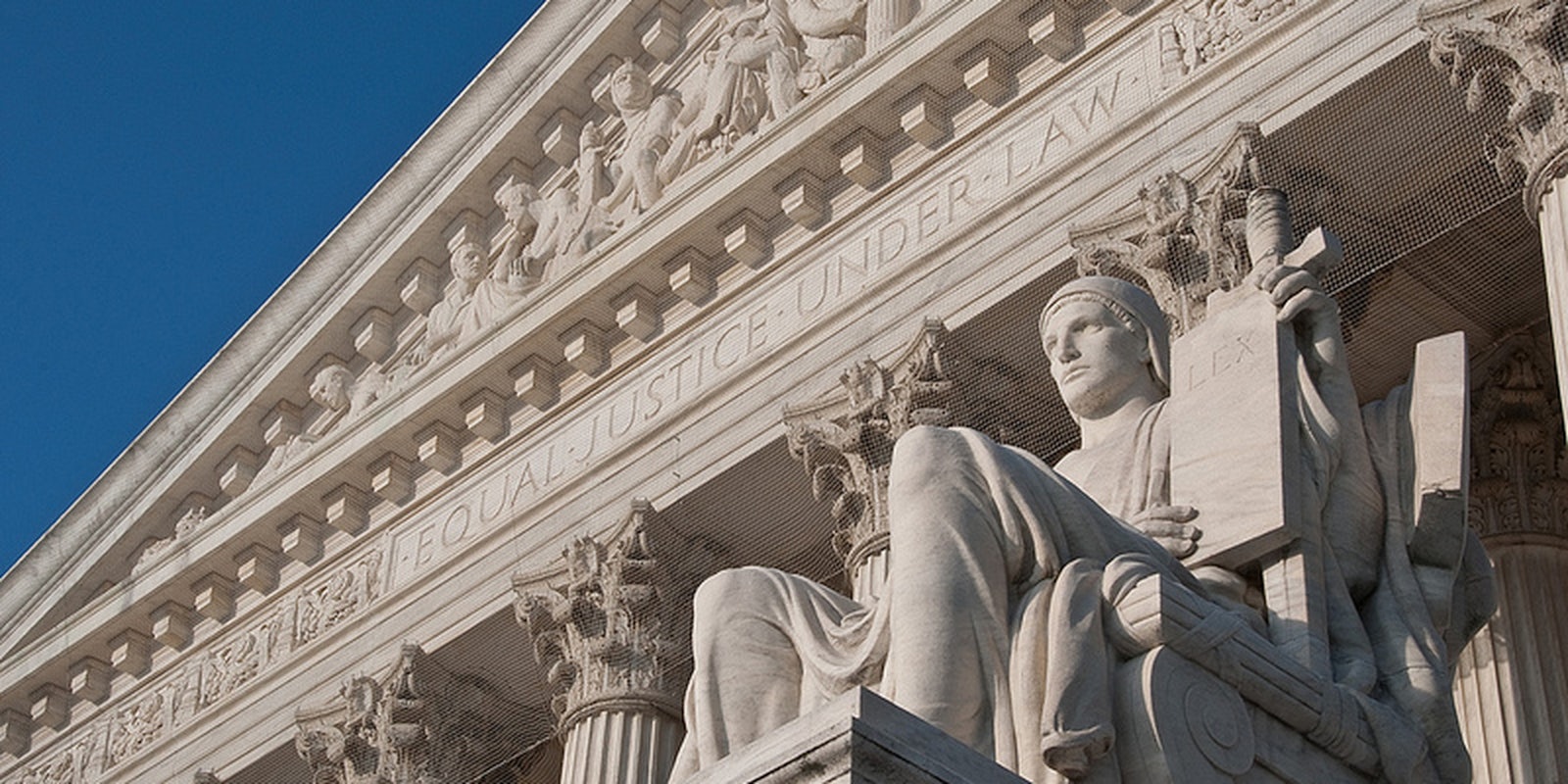In a tight 5-4 decision, the U.S. Supreme Court ruled on Monday that two evangelical Christian family-owned corporations are not required to pay for insurance coverage for contraception due to their religious freedom protections under federal law.
The decision marks a major defeat to a requirement put in place under President Obama’s Affordable Care Act (ACA), reports the New York Times. The challenge was brought by two corporations, Hobby Lobby and Conestoga Wood Specialties, who argued that this portion of the ACA ran against their religious principles.
Both companies argued, against scientific consensus, that emergency contraception like Plan B, Ella, and a T-shaped widget known as a intrauterine device, or IUD are equivalent to abortions because they prevent embryos from implanting on the womb.
The decision, written by Justice Samuel Alito, has sparked a storm of reactions and conversations across social media from conservatives, liberals, and everyone in between. As of this writing, #HobbyLobby is the top trend on Twitter.
Many Republicans and conservatives are taking a victory lap, claiming the decision is a win for the First Amendment and religious freedom.
America was founded on the principle of religious freedom, and there is nothing more fundamental than the First Amendment. #HobbyLobby
— Michele Bachmann (@MicheleBachmann) June 30, 2014
#SCOTUS #HobbyLobby decision affirms the First Amendment still stands. It’s up to us to make sure it continues to… https://t.co/Dz9NIFksDG
— Herman Cain (@THEHermanCain) June 30, 2014
Be clear– #HobbyLobby doesn’t want to pay for birth control AFTER conception because kills a life. Pays for the pill. #SCOTUS
— Emily Miller (@EmilyMiller) June 30, 2014
Americans can’t be forced to surrender their religious freedom once they open a business. https://t.co/q7ymhiYpt6 #SCOTUS #HobbyLobby
— Senator Ted Cruz (@SenTedCruz) June 30, 2014
#SCOTUS ruled in favor of religious freedom by taking a stand w/ #HobbyLobby. Religious liberty will remain intact: https://t.co/3QfueOReXC
— Senator Rand Paul (@SenRandPaul) June 30, 2014
On the other side of the debate, opponents believe that the decision will have a profound negative effect on women’s health.
When I was 16 #birthcontrol literally saved my life. It stopped me hemorrhaging to death. What if my mom’s employer had refused to cover it?
— Jessica Malordy (@macontedefees) June 30, 2014
The next time you have to perform a back alley abortion, do it with a coat hanger you got from Hobby Lobby
— Bobby Big Wheel (@BobbyBigWheel) June 30, 2014
Today’s #HobbyLobby decision is a step backwards for women’s health. Women’s health choices belong between a woman & her doctor.
— Nita Lowey (@NitaLowey) June 30, 2014
Supreme Court rules bosses can use religion to discriminate against women in decision for #HobbyLobby.
— ACLU National (@ACLU) June 30, 2014
Women, not bosses, should be in charge of their personal health care decisions. #notmybossbusiness pic.twitter.com/EQO7X7bQl3
— Richard Blumenthal (@SenBlumenthal) June 30, 2014
Ladies we should have never given men the right to vote #HobbyLobby
— sarah jeong (@sarahjeong) June 30, 2014
Of course corporations are religious people. Sometimes they even come back from the dead.
— Felix Salmon (@felixsalmon) June 30, 2014
Add two questions to your job interview Qs: Is this company religiously affiliated? Does the insurance cover birth control? #hobbylobby
— Steph Herold (@StephHerold) June 30, 2014
If anybody starts a list of corps that refuse medical coverage for insured employees for religious reasons let me know so I can boycott.
— Mary Ratliff (@ninehourfilms) June 30, 2014
This marks the end of one major battle in a much larger war over issues as vast as contraception, abortion, women’s rights, and healthcare. The war is far from over, however, and the next battle may be waged in Congress as opponents of this decision hope that legislatures can make an exception to the Religious Freedom Restoration Act of 1993, in order to force corporations to provide contraceptive insurance regardless of religious belief.
Photo via Mark Fisher/Flickr (CC BY SA 2.0)


